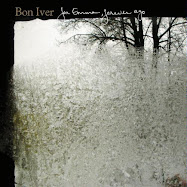When writers write, they think they're just telling a story. How my lover cheated on me. How much I love my grandmother. How boring work is. But what we don't realize is that the stories we tell about who we are may define who we become.
Life stories, by their very nature, are a retrospective reconstruction. We all have different versions of the same story. My friends and I attended a party once and the next day, when I asked them to tell me what happened, it turns out we all remembered things differently.
Or, I'd ask people to discuss a film and they'd say they like it or dislike it for different things. It was the same film but what was significant for one was trivial to another.
In a New York Times article titled "This Is Your Life (and How You Tell It)" published in 2007, researchers discovered there was a strong correlation between the content of a person's life and the stories he/she tells.
Those with mood problems have many good memories, but these scenes are usually tainted by some dark detail. The pride of college graduation is spoiled when a friend makes a cutting remark. The wedding party was wonderful until the best man collapsed from drink. A note of disappointment seems to close each narrative phrase.
By contrast, so-called generative adults — those who score highly on tests measuring civic-mindedness, and who are likely to be energetic and involved — tend to see many of the events in their life in the reverse order, as linked by themes of redemption. They flunked sixth grade but met a wonderful counselor and made honor roll in seventh. They were laid low by divorce, only to meet a wonderful new partner. Often, too, they say they felt singled out from very early in life — protected, even as others nearby suffered.
The research argues that "narrative themes are, as any other trait, driving factors in people's behavior."
“We find that when it comes to the big choices people make — Should I marry this person? Should I take this job? Should I move across the country? — they draw on these stories implicitly, whether they know they are working from them or not,” Dr. McAdams said.
When I read personal blogs or stories, I tend to create an image in my mind of who the writer is. Oftentimes, it is how the writer perceived himself as an actor in the story.
The writer could be talking of a heartache; which is quite common in personal blogs. Does he portray himself as kawawa (the underdog)? Does he regret falling in love? Or did he use that experience to learn? It is how we choose to narrate the story that matters.
Storytelling can also be important in battling personal demons. Another study showed patients who sought treatment for depression, marital problems and who won told very similar tales about the experience.
They described their problem, whether depression or an eating disorder, as coming on suddenly, as if out of nowhere. They characterized their difficulty as if it were an outside enemy, often giving it a name (the black dog, the walk of shame). And eventually they conquered it.
While these people saw their problems (drinking, cheating) as a villain to be defeated, the others felt these were part of their own character.
Another trick I've learned is to learn to shift perspective from a first-person point of view to a third-person. Remembering events in the third-person point of view allows us to be a little distant from the story and to be more critical and objective.
In a 2005 study reported in the journal Psychological Science, researchers at Columbia University analyzed how people reacted to a painful memory when it was recalled in the third person.
“What our experiment showed is that this shift in perspective, having this distance from yourself, allows you to relive the experience and focus on why you’re feeling upset,” instead of being immersed in it, said Ethan Kross, the study’s lead author. The emotional content of the memory is still felt, he said, but its sting is blunted as the brain frames its meaning, as it builds the story.
What is interesting in all these studies is the implication that the power to change our lives may fundamentally be related to how we tell our stories. We write, apparently not just to express but also to create ourselves. So be careful how you write your stories, you may be revealing more than you want to.
Postscript:
Thank you to those who took the time to read, understand and share their thoughts about what I wrote. I fear I may have failed in making myself clear on certain things and because I strongly believe that this artice can be very helpful, I will labor to answer some of your comments.
It would help if you also read the original article as it appeared in the New York Times. I included a link above.
I noticed most of you focused on the implication of how other people would view you based on how you write. But that is not the point of this research. It is not how others perceive you, it is how you perceive yourself.
What others may conclude about you is irrelevant. It is not what kind of a writer you are, it is what kind of a person you think you are as revealed by how you tell or write your life stories.
The research also focuses only on life stories, the story of your life so it does not apply to fabricated tales, or fiction. We can surmise and discuss how we reveal ourselves in our fictional works but this is clearly beyond the limits of the research.
Again, it was a pleasure reading your comments and I look forward to hearing your ideas. Cheers =)
I would like to thank my friend Niel for sharing with me the article. He has been a wonderful friend, confidant and my de-facto shrink whenever I feel that life has dealt me another blow. But see Niel, look at where we are now? =)
-




15 comments:
you got me with these lines:
"It is how we choose to narrate the story that matters."
"So be careful how you write your stories, you may be revealing more than you want to."
I remembered a time talking to a blogger friend, I told him that it somehow scares me that I may be branded (don't know if its the right term) for the things I write though it's really what I felt, experienced etc.
But it's fine, as long as one should take responsibility for his own actions..
nice one kane!
Well, maybe somehow, on the things we write, we tend to leave trails to our real self unconsciously.
.
.
All the same, it isn't enough evidence to provide a conclusion but a decent leverage to conjure one.
.
.
Nice one Kane!
i'm with désolé.
writings do not totally define a person. they may reveal facets of the personality, but not necessarily capture the entire essence of the writer.
this most evident in cyberspace, where the anonymity it offers affords people to create an entirely different persona that could be diametrically opposite (but still subconsciously integral)to what they display in real life.
p.s. just read my entry tonight ;)
this post made me wonder as to what kind of writer am i... hhmmm...
Agree to all. But what if one claims to have written something that's totally fiction -- do we think that he might be narrating a part of himself too?
interesting.
maybe i should write on the third-person point of view again.
@Geek:
You are a powerful writer. Either you don't know it, or you refuse to admit it.
You can create a beautiful story out of few simple words. It is rare. Use your talent wisely.
-Ed.
your comment on my post a few days ago suddenly came into the picture
thanks for reminding me kane.
god bless
btw, i agree with desole boy
I fear not being able to write at all
|more than|
what I've written already.
The flaws only surface when we can't take responsibility over what we write.
Some powerful lines there Kane...you captured something that will make many think. There is truth is the simplicity of of stories.
you have me thinking, you dont have to be careful how you write. The writing is real and raw for the moment you write in it. In other words, when the rawness wears off, it becomes more 3rd person as we have processed some level of the story. Accepted, moved on, learned a lesson. Then the emotions pass.
However, great writers and artists revel in the rawness of emotions and produce great works...
Claire *
Being careful with lines may block the real you from emerging and expressing..
I really love this Kane, I even shared your entry and the article to my friends and all of us had learned new things, in one way or the other.
Personally, writing is therapy. That's just about the long and short of it. I really don't care if it reflects the monster that I will become. I'm pleased as long as it keeps the monster, in the now, sane and satisfied. Cheers Kane, Mabuhay ka and Muahness from Pasig Citehh!
I think I understood myself more when I started writing. As though my fiction helped shape my truth. Does that make sense?
Asan ka na?
I suspect that I appear more interesting than I actually am. It's certainly my aim. But I will never be as I want to be, either in person or in print. Excellent piece Kane.
this made me think
Post a Comment